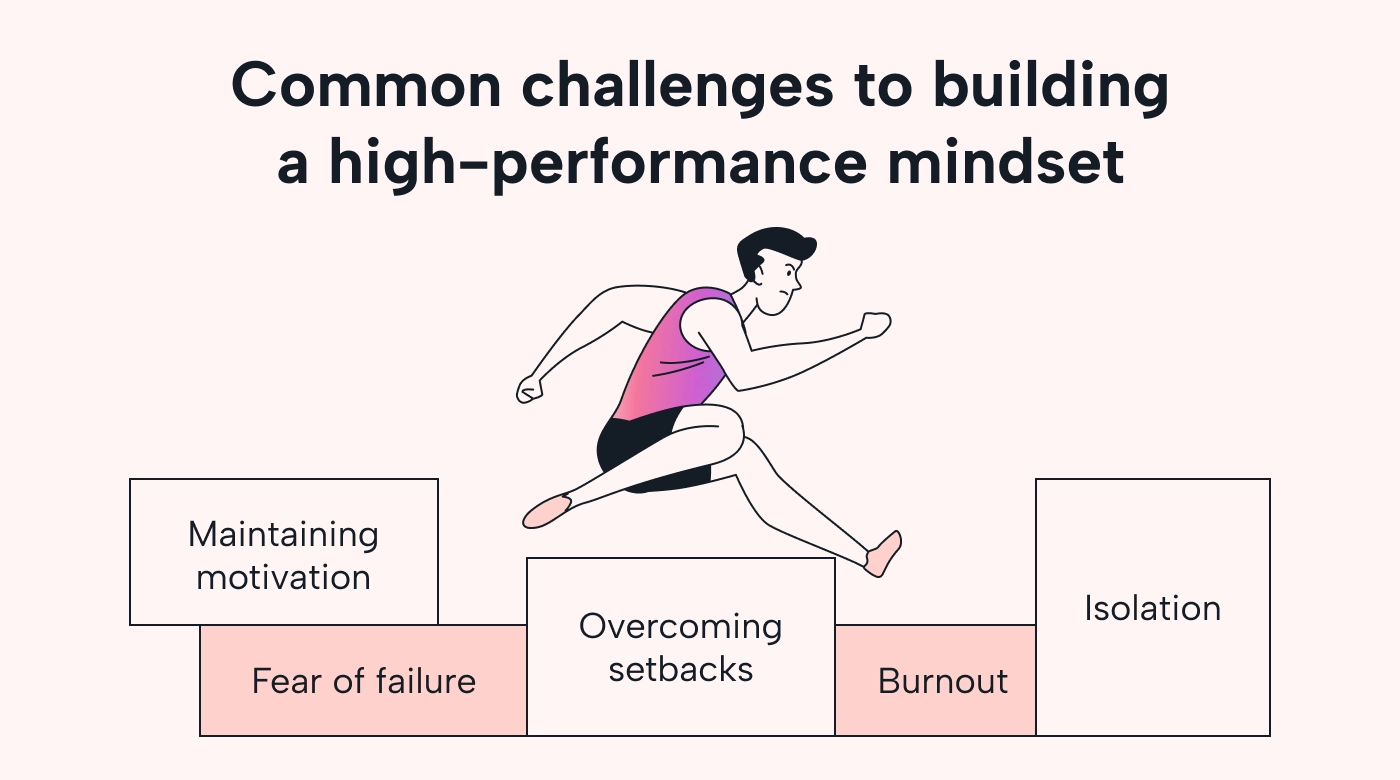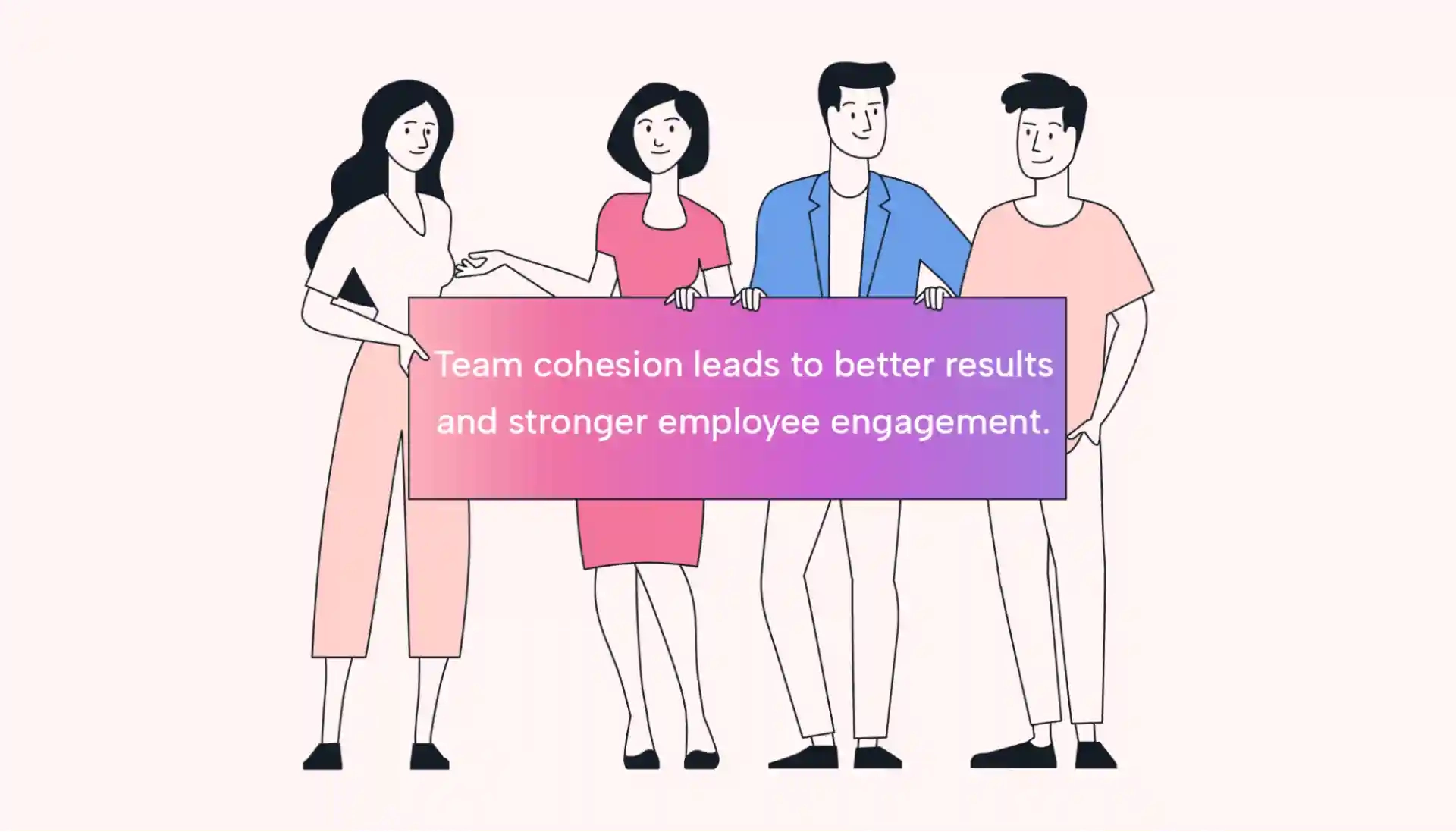Ever wonder how some people seem to breeze through their work while you’re on your fourth or fifth coffee by 10 a.m.?
Their secret isn’t exclusive to elite athletes or business moguls. It’s a high-performance mindset, and it’s within your reach. Whether you're looking to crush your next project, elevate your career, or simply get more out of every day, cultivating this mindset can be the breakthrough you’ve been looking for.
And believe it or not, some of the best lessons come from the most surprising sources: old-school pirates. Despite their dubious reputations, these sea adventurers were experts in resilience, strategy, and teamwork — all necessary qualities for peak performance.
So, it’s time to put the coffee down. We’re tapping into a treasure trove of strategies to help you in your quest for greatness.
What is a high-performance mindset?
Before we start learning from pirates, let’s discuss what a high-performance mindset is.
At its core, a high-performance mindset is about constantly striving to be the best in whatever you do. It’s characterized by:
- A relentless pursuit of excellence
- A commitment to continuous growth
- Achieving your highest possible potential
Those with a high level of performance carry a collection of positive attitudes, habits, and beliefs that help them remain at the top of their game, no matter the challenges they face.
Why is a high-performance mindset important?
A high-performance mindset is the driving force behind success and fulfillment in all areas of your life. With it, you are:
- More likely to reach your goals
- Better able to overcome challenges
- Better at making decisions
- More resilient
- Better able to inspire those around you
Many studies, including those by psychologist Carol Dweck, support the mental health benefits of a high-performance mindset, too. For instance, students with a growth mindset often experience fewer mental health issues, like obsessive-compulsive disorder, depression, and anxiety, compared to their peers with a fixed mindset.
9 lessons from pirates on building a high-performance mindset
While pirates might seem like unlikely teachers, their strategies for survival and success are incredibly relevant today. Here are nine lessons to help you reach your true potential — no eye patch or peg leg required.
 |
1. Plan and act with purpose
The dilemma:
With your days packed and that to-do list never-ending, it's all too easy to overload your cognitive processes. The secret to managing this chaos isn’t just hard work but also smart, strategic planning and precise execution.
Pirate lesson:
Pirates didn't just set sail on a whim. They planned their expeditions with the utmost precision, from choosing the best routes to timing their attacks based on weather and target availability. This meticulous approach was crucial to their success.
How to apply it:
Achieve greater success with thorough strategic planning and execution. By setting clear objectives, anticipating obstacles, and devising action plans, you can improve the effectiveness and outcomes of your projects.
2. Lead by listening to and including everyone
The dilemma:
A top-down approach to decision-making often prevails in organizations, which can alienate team members and quash innovation. Adopting a more inclusive leadership style can boost creativity and morale while also eliminating poor performance.
Pirate lesson:
Pirate ships were surprisingly democratic. The crew had a say in electing their captains and participated in decision-making processes. This level of inclusion created a committed and respectful crew environment.
How to apply it:
Create a culture that values all opinions. Using Motion’s Meeting Assistant to schedule inclusive meetings makes it easier to discuss changes, make collective decisions, and brainstorm new ideas, leading to more innovation and a more dedicated team.
3. Stay flexible no matter what
The dilemma:
The business environment is as unpredictable as the open seas, with sudden shifts in market trends, unexpected global events (hello, COVID-19!), and rapid technological advancements. You need to quickly adapt and adjust your strategies to stay ahead.
Pirate lesson:
Pirates were masters of adaptation, whether facing a sudden storm, an unexpected naval encounter, or a ripe opportunity for plunder. Their survival hinged on their agility and ability to make quick decisions in changing circumstances.
How to apply it:
Staying flexible can open up unexpected opportunities and contribute to success for today’s businesses and professionals. Motion can help you stay agile by automatically rescheduling tasks when disruptions happen.
4. Instill discipline among your crew
The dilemma:
With the pace of modern life, discipline is often the difference between success and chaos. However, balancing the freedom to innovate with the need for structure and order isn’t always easy.
Pirate lesson:
Despite their lawless image, pirates followed strict codes of conduct on their ships to maintain order and respect. These codes governed everything from dividing treasure to behavioral expectations, keeping the crew united and focused on their goals.
 |
How to apply it:
Modern organizations should follow industry best practices and maintain high standards to improve work quality and consistency. Tools like Motion’s automatic scheduler can help integrate discipline into your daily operations.
Promoting self-regulation is also essential, as managing time, emotions, and resources is key to achieving professional excellence and team success.
5. Master the art of resilience
The dilemma:
Whether you’re at the office or home, resilience is often the difference between getting ahead and getting stuck. However, facing tough issues, like failed projects, rejected ideas, or personal setbacks, tests your ability to bounce back.
Pirate lesson:
A pirate’s life was full of danger and uncertainty, requiring incredible resilience to withstand storms, battles, and betrayals. But this resilience also meant learning from each setback, tweaking their plans, and re-entering the fray with renewed energy and smarter strategies.
How to apply it:
View each challenge you face as a chance to learn and grow. Learn from your mistakes, appreciate feedback, and adjust your strategies accordingly. This mental tool not only helps you persevere through tough times but also creates a vibrant culture where innovation emerges from the lessons you learn.
6. Learn how to manage risks
The dilemma:
Risk management is an indispensable skill in business today. Whether you're making a big financial decision or planning your next strategic move, knowing how to weigh risks against rewards can set the stage for growth and stability.
Pirate lesson:
Believe it or not, pirates were quite good at risk management. They constantly had to balance the allure of a lucrative plunder against the potential dangers — in fact, their survival depended on it.
How to apply it:
Work on sharpening your risk management skills. A keen sense of when to take a risk and when to hold back is crucial to making informed decisions — and can lead to substantial rewards.
7. Build a team that sticks together
The dilemma:
Building a team that “clicks” at all levels (cohesion, effectiveness, and commitment) is a tall order in any workplace. Teams should not only share a common goal — they also need to trust and respect each other and commit to working hard together.
Pirate lesson:
Pirate crews depended on their unity and loyalty. They had to trust each other completely in every raid and voyage, with no space for slackers or backstabbers. This strong sense of teamwork enabled them to survive tough times and secure treasure.
How to apply it:
Build a cohesive team based on trust and mutual respect. Develop a culture where contributions are valued and everyone aims for common goals. This makes the team effective and the work more enjoyable.
8. Get creative with what you’ve got
The dilemma:
These days, businesses and individuals often have to do more with less. Resourcefulness and creativity have become indispensable skills in navigating these constraints, especially for small businesses and startups.
Pirate lesson:
Pirates were the ultimate improvisers. Despite their limited means, they modified their ships for more speed or beefed up their armaments. What’s more, they always had a clever plan for taking on ships that seemed out of their league.
How to apply it:
Encourage your team to think outside the box and make the most of available resources. This is especially important for small businesses, whose resources are often limited. Innovating within constraints can lead to surprisingly effective solutions and strategies that give you a competitive edge.
9. Continue the quest for knowledge
The dilemma:
With technology, market trends, and professional skills evolving at a breakneck pace, staying competitive requires an unending commitment to learning and growing.
Pirate lesson:
Pirates needed to be experts in navigation and seamanship. Their ability to read the seas, weather, and stars showed their deep expertise and dedication, which was vital in their high-risk environment.
How to apply it:
Continually hone your skills and knowledge, and encourage your team to do the same. Support team members’ growth by offering them training and providing other learning opportunities. This commitment not only strengthens skills but also creates a team ready to face future challenges with confidence.
Common challenges and misconceptions about high performers
High performers are often placed on a pedestal, but this recognition comes with its own set of challenges and myths. Here are a few of the most common ones:
 |
Challenges
Keeping the fire alive
At first, the drive to succeed is strong and pushes you to achieve great things. However, sustaining that motivation over time can be daunting, especially when you hit obstacles or things start to slow down.
Fear of failure
Fear of failure can either drive you or hold you back. It might discourage you from trying new things or taking risks, leading you to avoid challenges and growth opportunities. Ultimately, this results in a safe but limiting path that stifles innovation.
Rising after the storm
Setbacks can lead you to question your abilities and potential, especially if you’re used to high standards. Your self-confidence then takes a dip. Unfortunately, self-doubt can make it hard to keep up the motivation needed for high performance.
Emotional and physical burnout
Constantly pushing yourself to the max without proper rest and recovery can lead to burnout. This exhaustion affects not just your performance but also your overall well-being.
Isolation and misunderstanding
If you’re focusing intensely on your goals, you might end up feeling isolated, which can strain your relationships at both work and home. This can lead to a lack of support, fewer feedback opportunities, more conflict, and even the feeling of being an impostor.
Misconceptions
Talent over effort
It’s a common myth that high performers are just born talented. The reality, though, is far different.
While talent certainly helps, extraordinary performance (like that exhibited by professional athletes) primarily comes from consistent practice, insightful feedback, and good habits. Effort — not just raw talent — shapes excellence.
Expecting instant results
Many people assume that professional and personal growth happens overnight. In truth, it's a gradual process. Expecting instant change or quick fixes often leads to frustration and disillusionment.
High performance equals constant success
Many think elite performers always succeed, but that’s not true. Failure is just as much a part of their journey as anyone else’s. The real difference is in how they deal with setbacks — they learn from each mistake and use those lessons to keep going with even more determination.
It’s all about hard work
While hard work is undoubtedly important, working smarter is equally critical. Successful people prioritize tasks, delegate, and manage time well. They might even use tools like Motion, which automates repetitive tasks, freeing them up for strategic work.
Equally important is knowing when to rest and recover.
You need to sacrifice your personal life
Contrary to popular belief, achieving success in your professional life doesn’t mean you have to sacrifice your personal life. In fact, maintaining a healthy work-life balance is crucial for lasting success. High performers know that neglecting their personal well-being can hold them back from professional achievements.
You need to do it alone
The idea that high performers succeed alone is misleading. In reality, they often rely on strong support networks, collaboration, and mentorship. Think of the saying, “It takes a village to raise a child” — or, in this case, a high-performance mindset.
Perform at your best with Motion
There you have it — a treasure trove of insights from the most unexpected advisors: pirates! It turns out that their tales of resilience, adaptability, and strategic prowess have more to teach us than many of us might’ve guessed. Not bad for a bunch of buccaneers.
But what’s the point in building a high-performance mindset if you don’t use it to make life easier? That’s where Motion shines.
Do you spend too much time tweaking your calendar? Say goodbye to that. With Motion, your tasks are automatically organized so that you can tackle the most important ones first.
Curious about what you could achieve with 13 months instead of 12 in a year? Find out by signing up for Motion’s 7-day trial today.

Benita is a wizard at breathing life into the dry and dense world of B2B SaaS. Bringing a fresh perspective to every piece, Benita turns exhaustive research into a delightful read, making even the most well-covered topics feel fresh and exciting. When she's not writing, you can find her collecting recipes and crocheting her own clothes.





